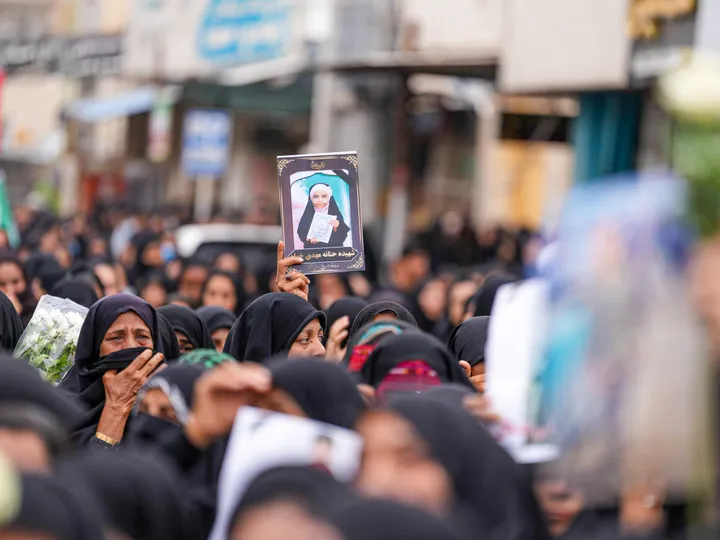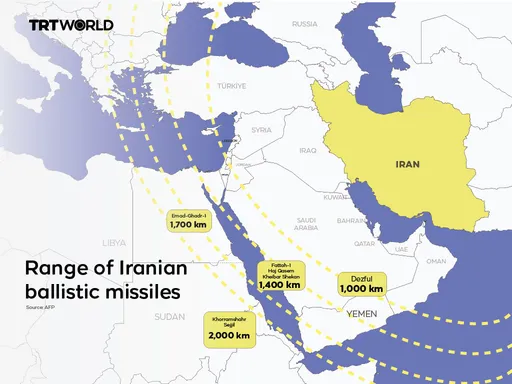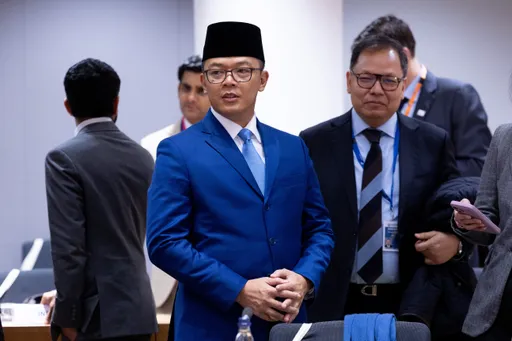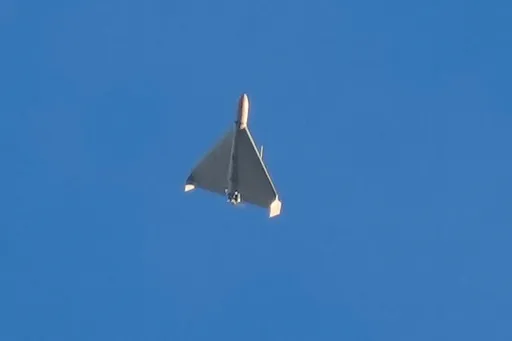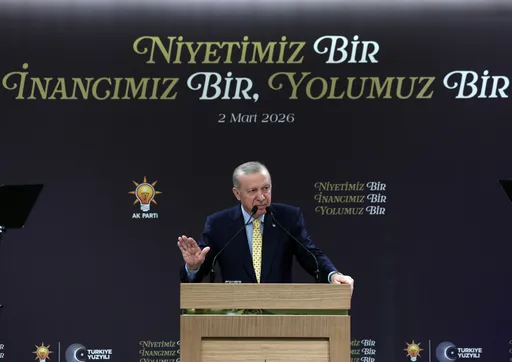BEIRUT— As I stand in front of the door of Berrieh Awad’s house in Burj Al Barajneh Palestinian refugee camp in Beirut, a toilet pipe of a neighbour’s house suddenly, on cue, overflows with raw sewage, which crashes to the ground right next to my feet and those of the UNRWA official. We both shriek like schoolgirls as we jump in the air. Immediately the stench fills our lungs, underlining the wretched poverty that these people are having to cope with; there couldn’t be a more befitting start to investigating the new levels of poverty which Palestinians are about to encounter, following Donald Trump’s withdrawal of vital aid money to UNRWA, than standing in raw sewage. It stinks.
It didn’t matter to Berrieh though. She has her own problems and the incident is forgotten. In her 60s, she can barely walk around her two-roomed flat, which she shares with her mother and two siblings. Both Berrieh and her mother are in desperate need of medication which they cannot hope to buy, and, in failing health, cling on to life in a dilapidated home with a leaky roof, broken windows and a bathroom in dire need of repair.
Berrieh and her family survive on cash handouts from UNRWA, which in reality puts food on the table. Without the vital $10 per person, per month, it seems hard to imagine how she would survive.
“My mum is old, sick, and there is no work ... I can’t bear it anymore,” she says. “If UNRWA stops helping, we live without schools, no medication, we die at the hospital doors, our children would live on the streets. What would happen?”
UNRWA, the UN’s own special aid agency, which supports Palestinian refugees in the West Bank, Gaza, Jordan, Syria and Lebanon, provides a vital lifeline to Berrieh and her sick mother. Not just with the cash handouts but also with health centres in Lebanon that provide essential free health care. If UNRWA were to be wound down, these women would be the first fatalities of Donald Trump’s decision to cut $360 million of US aid to the UN agency.
Trump’s move doesn’t seem so severe considering the UNRWA’s total budget was 1.3 billion annually. But some worry that Lebanon’s Palestinians camps will take the brunt of cuts.
Berrieh complains bitterly about the hospitals Palestinians require and for which they have to pay for themselves. But primary health care, through 27 health centres, might also be axed.
“There are a lot of things that we need, as Palestinians and others, for everyone, like schools and medical care, medical treatment. If someone has a headache, he doesn’t know where to go and have his medical treatment ... not all the hospitals have the proper equipment and medication,” she shouts to be heard, competing with the raucous noise from a neighbour over the blocked waste pipe incident.
Berrieh cannot imagine life without the health centres, which help women like her who cannot afford to go to the hospital. She can only dream of going or being given drugs that she and her mother need to ease their pain.
“When you go to the hospital, you should pay a sum of money before they look at you ... If you don’t have it, then you have to leave.”
Yet health centres, which Palestinians use before they even contemplate hospitals, are entirely free. Until now.
Just down the road from Berrieh’s home, outside of the camp, is an UNRWA-funded health centre, a dowdy building with high steel gates and a silhouetted diagram of an M16 rifle with a red line through it at its entrance. It’s full of women, as an elderly doctor explains that most of its patients are expectant mothers who are already suffering after losing their children due to botched home births, as few have the money for a hospital delivery. These women use the health centre for checks to at least prepare themselves for, against all the odds, a healthy delivery.
Women are dying at hospital gates
“If you didn’t have money, you will die while waiting near a hospital, and this is what’s happening in all the hospitals,” explains Maryam, a pregnant young woman who came for a check up. “Just like my neighbour, she gave birth to two kids. They didn’t allow her in the hospital because she didn’t have money ... she would have died on the gates where she gave birth, and still they didn’t let her in,” she adds.
“Now her child died. What can she do?”
A second patient, a veiled 40-year-old lady who didn’t wish to give her name, was regularly taking medication there for thinning bones and diabetes. She fears for the future if UNRWA’s health centres are shut down, or schools funded by the agency are closed. “I cannot afford anything from outside, sometimes we can’t even pay the rent,” she wails.
Will there be “problems” I ask through my translator – the word being a comical euphemism in Lebanon for armed clashes or terrorism, which she immediately understands.
“Of course there will be some problems, if they stop schools; the young ones, where will they go? I will tell you, they will go to terrorism ...”
Turning to terrorism is a no-brainer. Lebanon’s 12 camps are no-go areas for security forces and are hotbeds of militias, armed to the teeth. There may be food shortages, intermittent water and electricity – but there are plenty of guns, political factions supplying them and lugubrious amounts of ammunition.
In recent years, these militias have both fought with one another and fought with Lebanon’s army, sometimes in stand offs which have lasted for days. It is inevitable that depriving the Palestinians of health care and schooling is going to drive many youngsters into the hands of extremist groups.
In the last three years, poverty has driven some to leave the camps and fight with Nusra or Daesh in Syria, sometimes for modest monthly ‘salaries.’ These days most young men are expected to take up arms when they have nothing left to give them hope in the camps. But they will not leave for Syria, with Palestinian factions more likely to take them in and will pay them modest cash handouts that can at least make up the difference in what their mothers are missing in the household budget.
UNRWA boss warns of ‘instability’ and ‘risk’
It’s a point that even UNRWA’s Lebanon chief has to admit is likely. Trump’s policy to starve the agency will have an immediate effect of incubating violence and terror.
UNRWA chiefs are often derided by western journalists for talking of a cash crisis it weathers each year. But this year, Claudio Cordone, talks of a new crisis: the possibility of UNRWA closing altogether during the summer.
Cordone doesn’t mince his words. “The agency can only function until the summer,” he said in an interview. “What is at risk is that 27 primary health clinics would stop, 37,000 kids won’t have any guarantee they can go back ... and large numbers [around 60,000] living below the poverty line for whom we are their lifeline,” he warns.
“Clearly if essential support is withdrawn from impoverished Palestinians in the camps, we could see unrest. It’s very difficult to predict but the stability argument is a real one.”
Gender-based violence
Lina Abirafeh of the Beirut-based IWSAW – the region’s first academic institute for women, working on education, research and equality – agrees but warns of women being in the firing line. “In such situations, tension [is] felt everywhere. In camps this could result in greater violence, an increase in opportunistic crime and an increase in gender-based violence.”
Aside from the obvious worry of young men being dragged into the mire of terror groups, Abirafeh fears for Palestinian women, in particular young girls, and says pulling health care would have dire consequences.
“Health care and cash make a big difference. This is critical, life-saving support that should be non-negotiable, available to all. We’re talking about the very basics. What’s needed in fact is much more than this. So when we’re only providing a population with the bare minimum, and then even that is denied them, what can we expect in terms of peace, justice, sustainable development?!” she asks passionately.
Women are deeply affected, she argues, by the loss of basic health care support and predicts that women and girls will suffer in such situations. “Emergencies exacerbate pre-existing vulnerabilities, and women and girls are undoubtedly among the most vulnerable in this population. As a result, they may have to resort to riskier measures to ensure their own survival and that of their families. In short, we’re about to see the situation get much worse,” she warns.
“And it’s never about just health care or just cash – all of these things function together as part of an essential core package of support,” adds the IWSAW boss.
“Denying these aspects has serious ramifications elsewhere. As one example, less cash will mean greater economic vulnerability for families. This could lead to children being pulled from school in order to work [or beg]. This could lead to girls being married off at younger and younger ages to offset the economic burden.”
For Berrieh, back in her home in the camp, her worries are more about keeping food on the table for her senile mother, as she has long given up on affording essential drugs. And how to keep herself going, as she is doubled over, moving around the home. “Seven years ago, I applied to fix the house at UNRWA, and I didn’t get a reply till now ... My bathroom is not working. I can’t do anything, not ever fix a window,” she shouts above the noisy neighbour.
Asked about what will happen in the camp itself if the UNRWA funding is cut, she suddenly clams up and her eyes drop, weary that her Palestinian organisation sponsors, which used to be based in Lebanon at one point, might reprimand her for speaking out of turn.
“I don’t want to say,” she says firmly.


